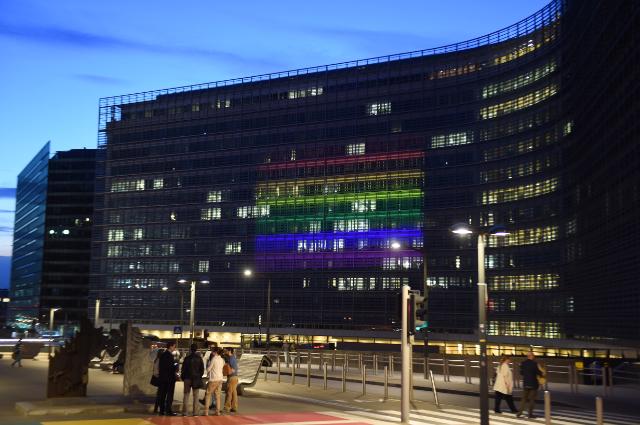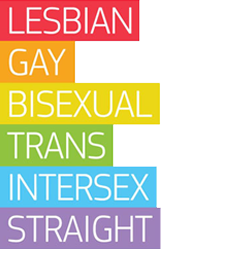LGBTI Equality
Related topics
Tackling discriminationdate: 17/05/2018
Discrimination on the grounds of sexual orientation and gender identity has no place in our society, but for many people in Europe, it is a daily reality. The 2015 Eurobarometer on discrimination shows that almost 60% of EU citizens see discrimination based on sexual orientation and gender identity as widespread.
LGBTI people continue to suffer from widespread discrimination, hate speech and hate crimes in the European Union. Although 71% of EU citizens agree that LGBTI people should have the same rights as heterosexual people, according to a study by the European Fundamental Rights Agency (2013), 47% of LGBTI people report to be discriminated or harassed in the year preceding the survey. Half of all respondents avoid certain places – public buildings, squares or public transportation – for fear of being harassed, threatened or attacked on account of their sexual orientation or gender identity.
About the work of the Commission to advance LGBTI equality
To tackle the discrimination against LGBTI people in the EU the European Commission has put forward the 'List of actions to advance LGBTI equality'. The actions outlined in this list cover all the main policy areas; effectively aiming to mainstream LGBTI equality. The policy areas included are:non-discrimination, education, employment, health, free movement, asylum, hate speech/hate crime,  enlargement and foreign policy.
enlargement and foreign policy.
The Council adopted the first ever conclusions on LGBTI equality in June 2016 requiring the European Commission to annually report on the implementation of the list of actions. The first annual report on the implementation of the List of Actions was published in February 2017, which provides an overview of the actions undertaken to advance LGBTI equality in 2016 and the ongoing efforts and commitment of the European Commission in this area. The second annual, covering 2017, was presented on the 1st of March 2018, at the occasion of Zero Discrimination Day.
Support to Civil Society
The Commission cannot combat discrimination alone. An important action therefore is that it supports civil society organisations through the Rights, Equality and Citizenship programme to advance LGBTI equality. Information on this funding and new calls for proposals can be found here.
| 71% of citizens support equal rights for LGBT people |
|---|
Awareness raising
The European Commission is standing against discrimination, prejudice and hate, and for diversity. By raising awareness on the rights of LGBTI people, we’re showing the world that no matter whom we love or who we are, everyone should enjoy the same rights.
In 2016 the ‘We All Share the Same Dreams’ campaign was launched and the European Commission took part in the EuroPride in Amsterdam. Now the European Commission is committed to sharing video testimonies of personal stories from LGBTI-people and their allies from across the EU. The campaign focuses on what it means to be LGBTI and how strong social support can enable greater solidarity between different members of society.
On the International Day against Homophobia and Transphobia 2018, by disseminating promotional materials, and projecting the Rainbow flag on the headquarter building, the European Commission states its commitment to stand against discrimination and to promote LGBTI equality and inclusion. In addition to the video testimonies it organises events with EC Representations to advance LGBTI equality. The Commission also participates to the IDAHOT Forum and human rights events that are part of Prides. #EU4LGBTI #EUandME #IDAHOT2018
| Videos - #EU4LGBTI stories | ||
|---|---|---|
| Sasi and Oliver | Ewa, Krystyna and Suzanne |
Tovaldas & Genovaite |
| Monika & Pol | Roberto & Andrea |
Learn more about SOGI and LGBTI
Sexual orientation (SO) refers to each person’s capacity for emotional, affective and sexual attraction to, and intimate and sexual relations with, individuals of a different or the same gender or more than one gender. Gender identity (GI) refers to each person’s deeply felt internal and individual experience of gender, which may or may not correspond with the sex assigned at birth.
 A lesbian is a woman whose enduring physical, romantic and/or emotional attraction is to other women. Gay is often used to describe a man whose enduring physical, romantic and/or emotional attraction is to other men, although the term can be used to describe both gay men and lesbians. Bisexual describes an individual who is physically, romantically and/or emotionally attracted to both men and women. Transgender describes people whose gender identity and/or gender expression differs from the sex they were assigned at birth. The term intersex refers to a condition in which an individual is born with reproductive or sexual anatomy and/or chromosome patterns that do not seem to fit typical biological notions of being male or female. Individuals with these conditions were previously called “hermaphrodites”, however this term is considered outdated.
A lesbian is a woman whose enduring physical, romantic and/or emotional attraction is to other women. Gay is often used to describe a man whose enduring physical, romantic and/or emotional attraction is to other men, although the term can be used to describe both gay men and lesbians. Bisexual describes an individual who is physically, romantically and/or emotionally attracted to both men and women. Transgender describes people whose gender identity and/or gender expression differs from the sex they were assigned at birth. The term intersex refers to a condition in which an individual is born with reproductive or sexual anatomy and/or chromosome patterns that do not seem to fit typical biological notions of being male or female. Individuals with these conditions were previously called “hermaphrodites”, however this term is considered outdated.
Related links
- Rights, Equality and Citizenship programme
- ILGA Europe - International Lesbian, Gay, Bisexual, Trans and Intersex Association
- Transgender Europe
- Organisation Intersex International Europe
- IGLYO - The international Lesbian, Gay, Bisexual, Transgender, Queer & Intersex Youth & Student Organisation
Related documents
- Social Media Toolkit
- Factsheet and Powerpoint on advancing LGBTI equality (available in languages of each EU Member State)
- Annual Report 2017 on the List of Actions to advance LGBTI Equality
- Annual Report 2016 on the List of Actions to advance LGBTI Equality
- List of Actions to advance LGBTI Equality to be implemented during the period 2016-2019
 (2 MB)
(2 MB) - Council Conclusions on LGBTI Equality
- EU and national data LGBTI Eurobarometer factsheet - October 2015
 (2 MB)
(2 MB) - EU data LGBTI Eurobarometer factsheet - September 2015
 (726 kB)
(726 kB) - Citizen Guide "Know your rights – protection from discrimination" (available in all languages)
